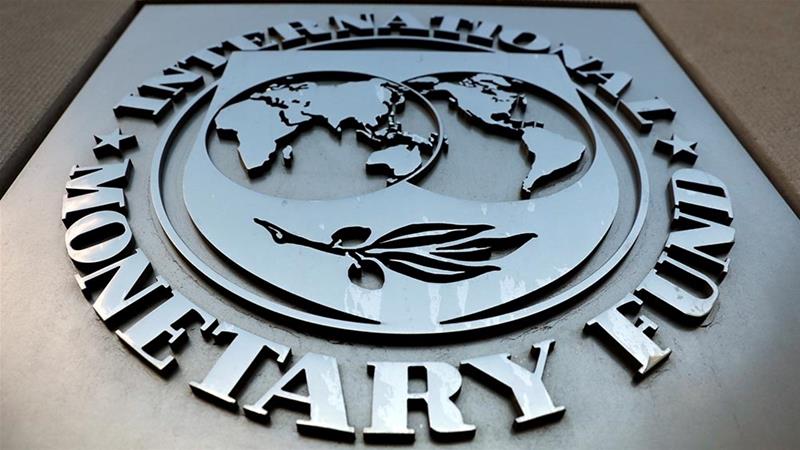Africa To See Slowest Regional Growth In 2021- IMF
A participant stands near the IMF logo at the International Monetary Fund / World Bank Annual Meeting 2018 in Nusa Dua, Bali, Indonesia. (Reuters)
Sub-Saharan Africa is set to record the world’s slowest regional economic growth at 3.4 percent as it struggles to recover from a virus-triggered slump, the International Monetary Fund (IMF) warned on Thursday.
“The economic hardships have caused significant social dislocation, with far too many being thrust back into poverty,” said Abebe Aemro Selassie, the head of the IMF’s Africa department.
“The number of extreme poor in sub-Saharan Africa is projected to have increased by more than 32 million,” he said.
Sub-Saharan Africa has so far lagged behind in the global rollout of vaccinations.
The IMF warned that limits on access to vaccines and policy space were holding back the near-term recovery, calling for wealthy countries to step up access to vital vaccines and make financing available to Africa.
The IMF forecasts estimate that for most countries, the cost of vaccinating 60 percent of the population will require up to a 50 percent increase in health spending. The additional outlay could exceed 2 percent of GDP in some countries.
The fund estimates that sub-Saharan Africa will more than recover from the 1.9 percent contraction it experienced in 2020 — the worst year on record — with a growth spurt of 3.4 percent this year.
The growth is attributed to more countries opening up their borders, bolstering trade and commerce.
But in many countries, “per capita incomes will not return to pre-crisis levels until 2025”, the IMF warned.
According to Selassie, countries in the region have been hit by a “trilemma” of pandemic-related risks including increasing developmental needs in health and infrastructure spending, increasing debt levels and governments being unable to collect more taxes.
Meanwhile, other factors such as access to external financing, political instability, domestic security, or climate shocks could further jeapordize recovery.
On the upside, the fund notes that a faster‑than‑anticipated vaccine supply or rollout could boost the region’s near-term prospects.





